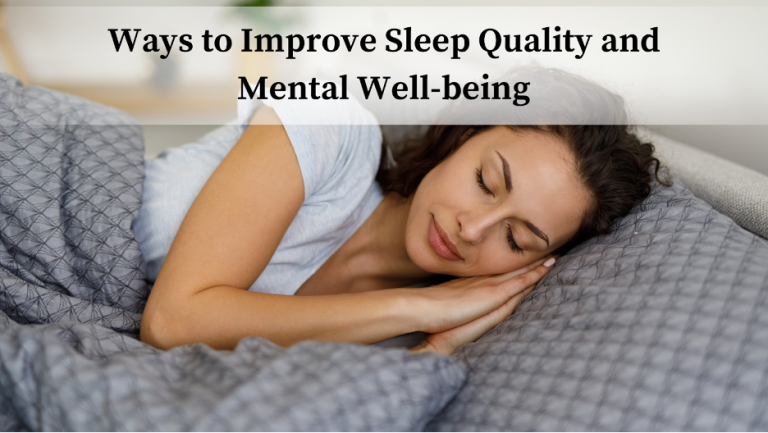Having Difficulty Sleeping? Here’s How to Improve Your Sleep Naturally
Struggling to fall asleep at night is a common issue for many people. Nights spent tossing and turning can leave you feeling exhausted and frustrated. Sleep is crucial for the body and mind. It helps to restore energy, repair tissues, and regulate hormones. Without adequate sleep, the immune system weakens, cognitive function declines, and the risk of chronic conditions like heart disease and diabetes increases.
While there are numerous medications available for sleep, many prefer to seek natural solutions first. This guide offers practical, natural strategies to improve sleep quality, helping you achieve restful nights without resorting to medication.
Natural Supplements for Better Sleep
Natural supplements can be an effective way to enhance sleep quality. They offer a gentler alternative to prescription medications and can support the body’s natural sleep processes.
The Role of Magnesium
Magnesium is a vital mineral that plays a key role in numerous bodily functions, including muscle relaxation and the regulation of the nervous system. It supports the metabolism and utilization of carbohydrates and fats for energy, which can also aid in overall well-being. Magnesium helps activate enzymes necessary for physiological functions, including cardiac health and muscle relaxation, which are essential for restful sleep.
One highly recommended form of magnesium is Pure Encapsulations Magnesium Glycinate. This supplement is known for its high bioavailability, meaning it is easily absorbed and utilized by the body. It is made with high-quality vegan ingredients, ensuring it meets dietary preferences and restrictions.
Other Natural Supplements
Other natural supplements can also support better sleep. Melatonin, a hormone that regulates sleep-wake cycles, can be beneficial for those with irregular sleep patterns. Valerian root is an herb known for its calming effects and can help reduce the time it takes to fall asleep. Chamomile, often consumed as a tea, has mild sedative properties and can promote relaxation. These supplements, when used appropriately, can enhance sleep quality without the side effects associated with some medications.
Creating a Sleep-Friendly Environment
The environment in which you sleep plays a significant role in sleep quality. Making a few adjustments to your bedroom can create a more conducive atmosphere for restful sleep.
Optimal Bedroom Conditions
Ensure your bedroom is comfortable and inviting. Invest in a good-quality mattress and pillows that provide proper support. Bedding should be soft and comfortable. Keep the room cool, as lower temperatures can promote better sleep. Check out a few different mattress stores to get an idea of the best mattress for your needs.
Reducing Noise and Light
Light and noise are common sleep disruptors. Use blackout curtains to keep the room dark and minimize light exposure from outside. If complete darkness is not possible, an eye mask can be a helpful alternative. Reducing noise can be achieved by using earplugs or a white noise machine, which can drown out disruptive sounds and create a calming background noise.
Diet and Lifestyle Changes for Better Sleep
What you eat and how you live your daily life can significantly impact sleep quality. Making mindful choices can promote better sleep.
Foods to Avoid
Caffeine, found in coffee, tea, and chocolate, is a stimulant that can keep you awake if consumed too close to bedtime. Alcohol might make you feel drowsy initially but can disrupt sleep later in the night. Heavy, rich meals before bedtime can cause discomfort and indigestion, making it difficult to fall asleep.
Sleep-Promoting Foods
Foods rich in tryptophan, such as turkey, nuts, and seeds, can boost the production of sleep-inducing chemicals in the brain. Magnesium-rich foods like leafy green vegetables, nuts, and whole grains can help relax muscles and promote sleep. Cherries are a natural source of melatonin and can help regulate sleep-wake cycles.
Regular Exercise
Regular physical activity can improve sleep patterns by reducing stress and promoting relaxation. Aim for at least 30 minutes of moderate exercise most days of the week
Managing Stress and Anxiety
Stress and anxiety are common barriers to good sleep. Finding effective ways to manage these can lead to better sleep quality.
Mindfulness and Meditation
Mindfulness and meditation practices can reduce stress and promote relaxation. Mindfulness involves focusing on the present moment and letting go of worries about the past or future. Meditation techniques, such as guided imagery or progressive muscle relaxation, can calm the mind and prepare it for sleep.
Journaling Before Bed
Journaling can be an effective way to clear the mind before bed. Writing down worries, thoughts, and plans for the next day can help reduce anxiety and prevent these thoughts from disrupting sleep. Spend a few minutes each evening reflecting on the day and noting any positive experiences, which can also promote a sense of calm and gratitude.
Seeking Professional Help
If sleep problems persist despite trying these natural methods, it may be time to seek professional help. A healthcare provider can help identify underlying issues and recommend appropriate treatments.
When to See a Doctor
Consult a doctor if sleep problems continue for more than a few weeks or significantly impact daily life. A medical professional can help diagnose any underlying sleep disorders and suggest effective treatment options.
Sleep Disorders
Common sleep disorders, such as insomnia, sleep apnea, and restless leg syndrome, require specific treatments. Proper diagnosis and management of these conditions can lead to improved sleep quality and overall health.
Conclusion
Improving your sleep naturally involves making a few lifestyle adjustments and being mindful of daily habits. By understanding the importance of sleep, creating a sleep-friendly environment, and incorporating relaxing routines and natural supplements, you can enhance your sleep quality significantly. Start with these simple changes and enjoy a restful night’s sleep.
Remember, good sleep is crucial for maintaining overall health and well-being. Make sleep a priority, and the benefits will soon follow.







